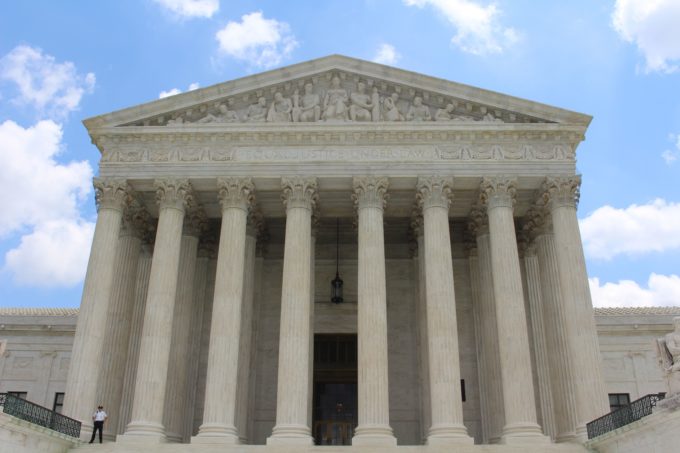Andrei Iancu v. Erik Brunetti, Petitioner’s Brief, hosted by the Supreme Court
Andrei Iancu, Under Secretary of Commerce for Intellectual Property and the United States Patent and Trademark Office (“USPTO”), appealed the United States Court of Appeals for the Federal Circuit’s Ruling in favor of Erik Brunetti to the United States Supreme Court. Petitioner Iancu is represented by United States Solicitor General Noel Francisco.
Respondent Erik Brunetti, an artist, founded FUCT in Los Angeles in 1990 and has been repeatedly denied trademark registration despite the apparent existence of fake products. The brand has for years “push[ed] good taste’s malleable boundaries” by including graphics that have “celebrated despots [and] ripped off other brands’ logos.”
Brunetti brought the case to challenge the USPTO’s decision not to register the trademark for his FUCT clothing line because of the company’s similar sound to profanity. Respondent challenges the constitutionality of 15 U.S.C. 1052(a) (Congress’s scandalous marks provision), the provision by which the USPTO banned his brand name, arguing that it is a violation of his First Amendment freedom of expression.
The petitioner’s brief made four main arguments in defense of the USPTO determination. First, strict scrutiny should not be the standard by which Section 1052(a) should be judged. The petitioner makes three assertions regarding this argument. First, the provision is not a restriction of speech, as it does not restrict the use of such speech in commerce. Instead, not using profanity is a condition by which a government benefit will be granted through trademark registration. Second, examining content is a natural part of trademark registration, and could not operate otherwise. Third, the provision is viewpoint neutral. The scandalous provisions are not purported to present offensive ideas, but instead are an offensive mode of expression.
Second, the petitioner argues that the scandalous marks provision satisfies a reasonableness standards for two reasons. First, it reasonably relates to a legitimate government interest of promoting the use of marks that are age-appropriate for everyone. Second, the provision would not adversely permit other future statutes to unduly permit speech through copyrights, as this decision is narrowly related to granting a registration.
Third, the Court’s previous ruling in Matal v. Tam, 137 S. Ct. 1744 (2017) is not controlling because that case was not viewpoint neutral, whereas the current case is viewpoint neutral in its restriction. Tam 137 S. Ct. 1744 (2017).
Fourth, the provision is not unconstitutionally vague under the First and Fifth Amendments. “FUCT” is indisputably considered an equivalent of the vulgar term. The vagueness standard is also relaxed when related to the conferment of a benefit as opposed to prohibiting speech, easing concerns about chilling speech. As such, the definition of scandalous can be ascertained from the general viewings of the public. Further, alleged inconsistencies in the application of the rule are not evidence of too much vagueness, as those decisions are context specific.
